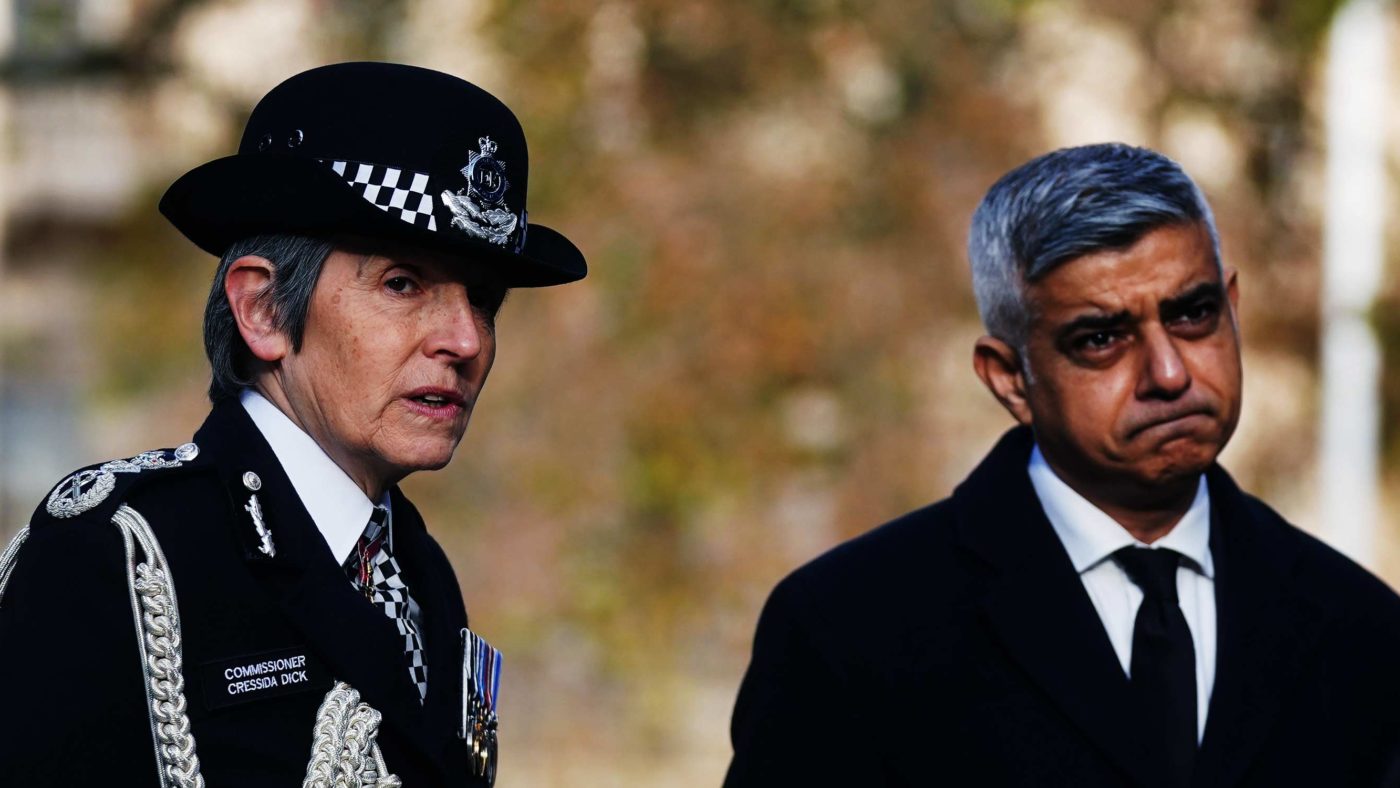Why did the Mayor of London sack the Commissioner of the Metropolitan Police just five months after agreeing a two year extension to her contract?
Sadiq Khan’s supporters will argue he was reacting decisively to an unsustainable weight of organisational ordure heaping on Cressida Dick’s besieged force. Cynics might observe that he was simply correcting a rare political miscalculation and, in leaving Priti Patel blindsided, burnishing his credentials. So, two women scorned – that may come back to haunt him.
I didn’t have much hope for Dick’s extended shelf life, whatever the rights and wrongs of her dismissal. The tenacious Dame Louise Casey is not the person to appoint to an inquiry into internal culture if your goal is career longevity. It was always a racing certainty that she would come up with even more examples of the institutional sickness that has plagued the Commissioner’s tenure and blighted the legacy of a public servant who gave 40 years of her life to a job that would make politicians who sit in her judgment fill their trousers. It was only ever a question of when, not if she would be forced out.
Khan says he believes that a new Commissioner is essential to restoring public trust in the Met, a force whose reputation has been battered by the conviction of officers for murder and sexual violence, and where whole stations are mired in racism and misogyny.
This charge sheet is aggravated by plain incompetence in several high-profile investigations. In recent months the stream of mistakes and misbehaviours had the Commissioner almost permanently in front of the cameras, issuing apologies like at ATM spewing out increasingly worthless currency.
It is, however, worth dwelling on the reaction of the police family to Cressida Dick’s shabby departure. There is almost unanimous sympathy and praise, from Chief Officers (at least those with more empathy than ambition) to front line constables, for a Commissioner who connected with them and understood how hard their mission has become.
Did that elide into defensiveness and inaction when the force was beset with scandals? Perhaps. But Khan’s prescription for change is hardly reassuring for Londoners, many of whom are marooned in postcodes dominated by violence and incivility. ‘Rooting out’ homophobia, sexism and misogyny are points on the virtue board but will cut little ice with people who want a decisive response to London’s horrifying record number of teenage knife murders.
Moreover, what will a change of figurehead actually achieve in terms of tackling the pockets of disgraceful behaviour that disfigures the reputation of thousands of decent officers who get up every morning to serve the public? Culture is what happens when nobody is looking. Putting a new lid on an old barrel is good optics for politicians, but it fundamentally misunderstands the problem facing the Met or what to do about it.
The new Commissioner will inherit precisely the same mess. The Met isn’t one culture, it is hundreds of them, good as well as bad. The toxic cultures in which officers think it’s OK to text rape threats to their colleagues, or to refer to black children as dog food, survive through the complicity and silence of colleagues.
The antidote to that complicity isn’t the person in the big chair in Scotland Yard, it’s strong, effective front line supervisiors who are able to lead by example, set the tone, support morale and enforce behaviour. Many of these people spend their days desk-bound, mired in bureaucracy when they ought to be out with their teams. Feral cultures endure where nobody is looking and there is no consequence for unacceptable actions.
By the same token, good officers who feel relentlessly browbeaten and unsupported as they struggle to cope with ever rising violence will vote with their boots if they aren’t well led. Then we are all in trouble. A good new Commissioner will be someone who doesn’t join in with the self-flagellation on appointment, but who urgently prioritises the selection, training and deployment of those Sergeants and Inspectors who will make or break this beleaguered organisation.
That has to mean someone appointed on the basis of merit alone and not because he or she possesses other attractive but irrelevant characteristics. This is one of the most profoundly complex jobs in public service, made more so by the interference of politicians whose instincts may not be aligned with what London desperately needs – a capable crime fighter who can navigate the giant egos and remain relentlessly focused on making our nations capital a safe place to visit, work and live in. Commentators are already speculating on names to put in that very large frame. It’s a dispiritingly thin field.
Perhaps more thought ought to go into designing a job that won’t break people from the start. The Met is too big and too complex. Hiving off some of its national responsibilities to the National Crime Agency – the clue is in the name – is long overdue. Allowing a new Commissioner to focus on restoring peace and order to streets and estates long deprived of any lawful authority beyond a parking warden is surely the biggest priority. Number 10 knows this and needs to use its leverage to screen out those who bring only buckets of progressive word salad to the table.
During Rory Stewart’s abortive campaign for London mayor he was stopped in his tracks on a walk about by a young couple who told him they were delaying starting a family until their neighbourhood was safer. All this in sight of the gleaming prosperity of Canary Wharf, in the richest city in the sixth largest economy in the world. The first question I would ask candidates for Commissioner is ‘how would you change their minds?’
Click here to subscribe to our daily briefing – the best pieces from CapX and across the web.
CapX depends on the generosity of its readers. If you value what we do, please consider making a donation.


